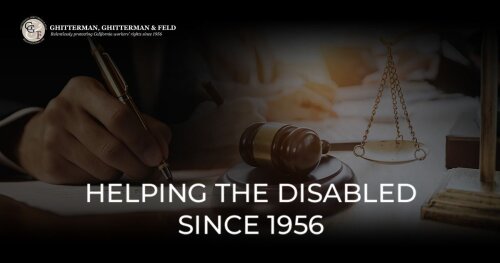Best Animal & Dog Injury Lawyers in Vermont
Share your needs with us, get contacted by law firms.
Free. Takes 2 min.
Or refine your search by selecting a city:
List of the best lawyers in Vermont, United States
About Animal & Dog Injury Law in Vermont, United States
Animal and dog injury law in Vermont governs situations where a person is injured by a dog or another animal. These laws address the responsibilities of pet owners, the rights of victims, and procedures for seeking compensation for injuries or damages. Whether you are a victim of a dog bite, an owner whose animal has caused injury, or someone involved in an animal-related accident, understanding Vermont's specific laws is crucial. The legal landscape covers civil liability, public safety measures, and even criminal penalties in some serious cases. The main goal is to balance the interests of animal owners with the right of the public to safety.
Why You May Need a Lawyer
Common situations where individuals may require legal assistance with animal and dog injuries in Vermont include:
- Victims who have suffered bites or attacks by someone else's dog or animal
- Pet owners facing claims or lawsuits due to their animal's behavior
- Disputes over whether an owner took reasonable steps to prevent injuries
- Issues involving dangerous or potentially vicious animals
- Dealing with insurance companies and negotiating compensation
- Medical bills, lost wages, or property damage arising from an incident
- Defending against criminal charges if your animal caused severe harm
- Assisting with the appeal or review process of animal control decisions
An experienced attorney can provide clarity on your rights, protect your interests, and help you pursue or defend against legal claims efficiently.
Local Laws Overview
Vermont law applies a mix of statutory rules and judicial precedents regarding animal and dog injuries.
- Strict liability: Vermont generally follows a rule that makes dog owners strictly liable for injuries their dogs cause. This means an owner may be responsible even if the dog had never shown aggression or bitten before, provided the injured person was lawfully present on the property and did not provoke the dog.
- Negligence principles: In some cases, liability can also arise if the owner was careless in controlling or restraining their animal, leading to someone’s injury or damage to property.
- One-bite rule: Vermont courts may consider if an owner was previously aware of their animal’s dangerous propensities (the "one-bite rule"), but the strict liability law typically takes precedence in dog bite cases.
- Animal control ordinances: Many towns or cities in Vermont have local rules about licensing, leash requirements, and designated dangerous animals. Violations can support a victim's legal claim.
- Criminal penalties: In severe cases where gross negligence or wanton disregard for safety is proven, an owner may face criminal charges in addition to civil liability.
Keep in mind that defenses may exist, such as if the injured person was trespassing or provoked the animal.
Frequently Asked Questions
What should I do if I am bitten by a dog in Vermont?
You should seek immediate medical attention for your injuries, obtain information about the dog and its owner, report the incident to local animal control authorities, and document your injuries. Consulting with a lawyer can help you understand your next steps and rights to compensation.
Am I automatically entitled to compensation if I am injured by a dog?
Vermont’s strict liability law makes owners liable in many cases, but circumstances such as trespassing or provocation may affect your eligibility. Each situation is unique, so legal advice is recommended.
What kind of damages can I recover in a dog bite case?
Victims may recover compensation for medical expenses, lost wages, pain and suffering, emotional distress, and in some cases, property damage resulting from the incident.
Can a dog owner defend themselves against a claim?
Yes, possible defenses include claiming the injured person was trespassing, provoking the animal, or acting illegally at the time of the incident.
What are my responsibilities as a dog owner in Vermont?
You must control your animal, comply with local licensing and leash laws, and take steps to prevent foreseeable harm to others. Failure to do so may result in liability for any injuries caused.
Does Vermont have breed-specific laws for dogs?
No, Vermont does not have statewide breed-specific legislation, but some towns or cities may have local ordinances concerning certain breeds. Always check local rules in your area.
Can I make a claim if a dog injured my pet or damaged my property?
Yes, dog owners can be liable for damages caused to other animals or personal property under state and local laws.
How long do I have to file a lawsuit after a dog bite?
Vermont’s statute of limitations for personal injury claims is generally three years from the date of the injury. Delays can affect your ability to seek compensation, so timely action is important.
What happens to a dog declared dangerous or vicious?
Local authorities may impose requirements such as muzzling, secure confinement, or, in extreme cases, euthanasia. Owners typically have rights to a hearing or appeal.
Can I pursue a claim if the dog's owner is a friend or family member?
Yes, you can still pursue a claim, and often compensation is paid by the owner’s homeowner’s or renter’s insurance policy, not the individual directly.
Additional Resources
If you need further information or assistance, the following organizations and resources may be helpful:
- Vermont Department of Health: For information on animal bite reporting and rabies control
- Local Animal Control Offices: For reporting incidents and learning about local animal ordinances
- Vermont Bar Association: For lawyer referral services
- Humane Society of the United States - Vermont Directory: For animal safety tips and local contacts
- Court Self-Help Programs: For guidance on small claims and civil lawsuits
Next Steps
If you or a loved one has experienced an animal or dog injury in Vermont, take these steps:
- Seek prompt medical attention and document your injuries.
- Report the incident to local authorities or animal control.
- Gather information, including witness statements and photographs of the scene or injuries.
- Contact an experienced attorney familiar with Vermont animal and dog injury laws. A lawyer can explain your rights, evaluate your case, and help you pursue compensation or defend against a claim.
- Review your insurance policies if you are an animal owner to understand your coverage.
Early legal advice can make a significant difference in protecting your interests, securing fair compensation, and ensuring responsible pet ownership in your community.
Lawzana helps you find the best lawyers and law firms in Vermont through a curated and pre-screened list of qualified legal professionals. Our platform offers rankings and detailed profiles of attorneys and law firms, allowing you to compare based on practice areas, including Animal & Dog Injury, experience, and client feedback.
Each profile includes a description of the firm's areas of practice, client reviews, team members and partners, year of establishment, spoken languages, office locations, contact information, social media presence, and any published articles or resources. Most firms on our platform speak English and are experienced in both local and international legal matters.
Get a quote from top-rated law firms in Vermont, United States — quickly, securely, and without unnecessary hassle.
Disclaimer:
The information provided on this page is for general informational purposes only and does not constitute legal advice. While we strive to ensure the accuracy and relevance of the content, legal information may change over time, and interpretations of the law can vary. You should always consult with a qualified legal professional for advice specific to your situation.
We disclaim all liability for actions taken or not taken based on the content of this page. If you believe any information is incorrect or outdated, please contact us, and we will review and update it where appropriate.
Browse animal & dog injury law firms by city in Vermont
Refine your search by selecting a city.










